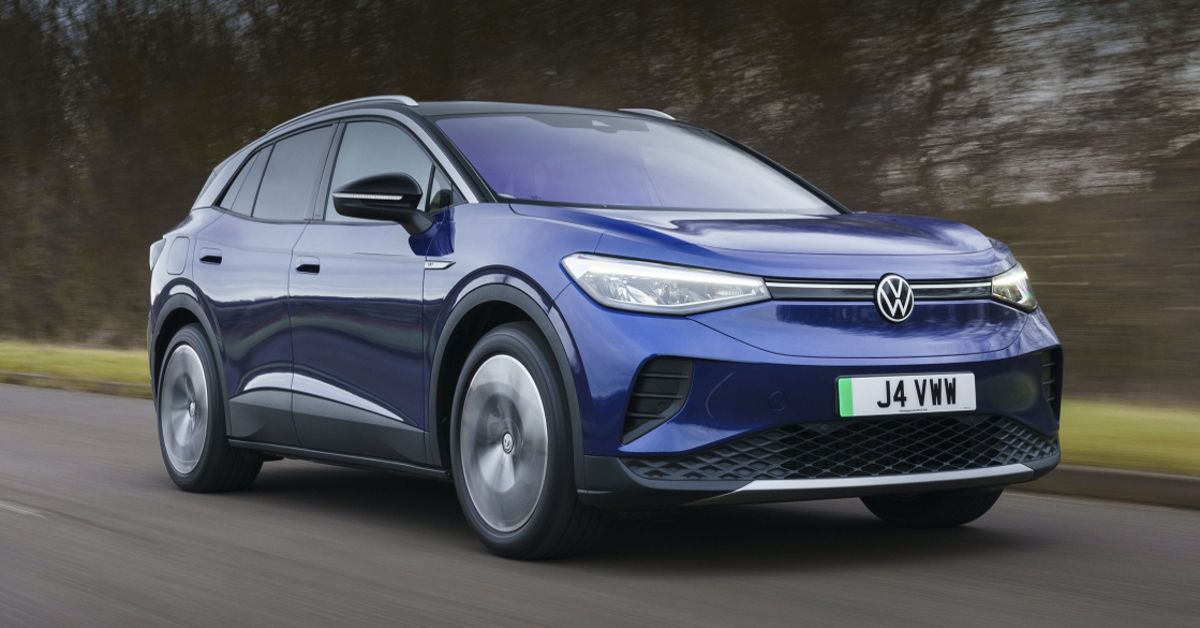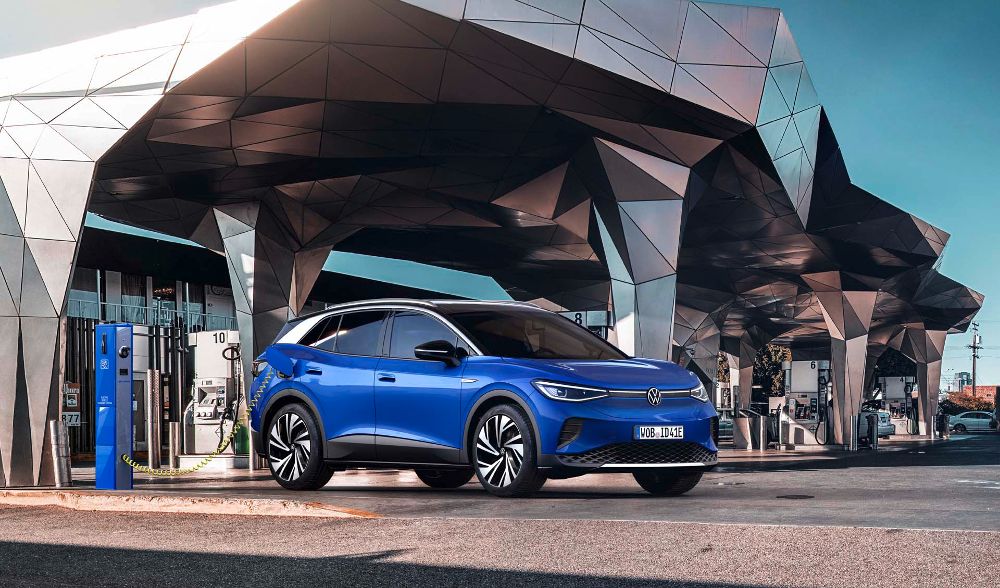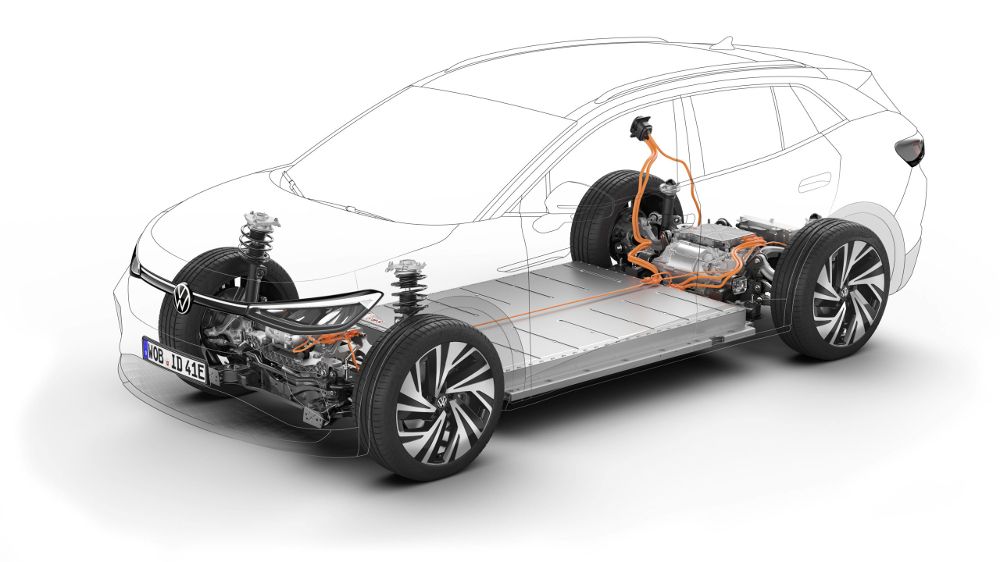Unlike just about every other car company Volkswagen, in the form of now group CEO Herbert Diess, has never claimed to have a “Tesla fighter.” Instead, he made the company’s mission very clear when he told the media that Volkswagen intended to build an attractive, affordable e-car for everyone. An all-electric car for millions, not just for millionaires.
And whilst this was said in reference to the ID.3 that will not make it to America, it is as relevant for the Stateside-bound ID.4.
So whilst Tesla has proven that it is possible to build an EV and make a profit, no one has yet built an affordable EV at a price point to challenge the smaller ICE-powered vehicles in America.
Duncan Movassaghi, the executive vice president of sales and marketing at Volkswagen of America, said in a presentation to the press in December 2020 that two things were top-of-mind as VW brought its first EV to market. Firstly, the product had to be accessible and make sense in the day-to-day life of the average American family.
Secondly, the package needed to be without compromise.
So rather than bringing the ID.3 hatchback to the U.S., VW aimed the ID.4 directly at one of the most popular segments of the market – the family-friendly compact crossover sector where legacy crossovers like the Honda CR-V, Toyota RAV4, and Subaru Forester account for more than 2 million sales annually.
The Volkswagen ID.4 Has One Of The Best Electric Vehicle Value Propositions In 2021
From an initial purchase standpoint, the ID.4 starts at $41,490, including its $1,195 destination fee. Although that’s definitely more expensive than comparable versions of conventional gasoline models, most buyers will be able to claim the (current) $7,500 federal EV tax credit, bringing the effective price down to $33,690. And that’s before other state incentives that might apply.
For instance: With the additional $1,500 cash-on-hood incentives for EVs just introduced in California, a potential ID.4 buyer stands to get a total of $3,500 in state incentives plus the federal tax credit.
To make the ID.4 even more appealing, VW is planning on a $379-a-month lease, nationally available and based on 10,000 miles per year. That’s a starting point. Depending on the state, those who lease might be able to claim state incentives, such as the $2,000 state credit in California and New York, or the $5,000 available in New Jersey.
According to VW, there are a total of 13 states where state incentives bring the effective lease cost below $250 a month. The New Jersey incentive actually brings the effective lease below $200 a month.
However, although VW has priced the ID.4 competitively, there are many benefits that aren’t apparent in the sticker price. For instance: the SUV comes with a four-year basic vehicle warranty, plus 8 years on the battery and two years of maintenance, via its network of 650 dealerships.
Additionally, the ID.4 is the only affordable EV that offers unlimited DC fast-charging - on the Electrify America network - for a total of three years. This is restricted to the original owner.
But the ID.4 is not only contesting sales on an attractive price offering, the vehicle itself is also shaping up to be an easy sell. According to Dustin Krause, director of e-mobility at Volkswagen of America, part of the intent behind the ID.4 was to make it an “inherently familiar” vehicle, despite the novel tech that the fully-electric compact SUV offers.
Under The Skin The Volkswagen ID.4 Is One Of The Best Electric Vehicles Of 2021
Built on VW’s MQB platform, the ID.4 sits in the middle of the compact SUV segment. With an overall length of 180.5 in, it is 4.6 in shorter than the Tiguan, even though the ID.4’s wheelbase is just 0.9 in shorter than that of the Tiguan. At 64.4 in, the ID.4’s height is also 1.9 in lower.
The motor in the rear-drive ID.4 pushes out 201 hp and 288 lb-ft, with the AWD developing 302 hp.
Powering the motor is an 82-kW-h battery pack made up of 288 pouch cells, arranged in 12 modules housed in an aluminum structure between the chassis side rails. Although the battery pack is cradled in aluminum, the rest of the ID.4’s body and chassis is steel.
The rear-drive and AWD variants use the same U.S.-built battery pack from SK Innovation, which means that the AWD will take a small hit in range. However, with an EPA-rated range of 250 miles, this should not pose a problem.
And when it’s time to charge the battery, the ID.4 comes with an 11-kW onboard charger for AC recharging that can charge the battery in as little as 7.5 hours at 240V. It is also capable of charging from a 125-kW DC charger, in which case it can recharge from 5% of battery capacity to 80% in roughly 38 minutes.
So, with data gathered for Volkswagen indicating that about 30% of people considering a mass-market compact SUV are also looking at an electric vehicle, the ID.4 could be the right product at the right time.
In the three most important areas – cost, range, and charging rate - the ID.4 is one of the best electric vehicles of 2021 and may be remembered, as was the Beetle, for bringing (EV) transport to the masses.



